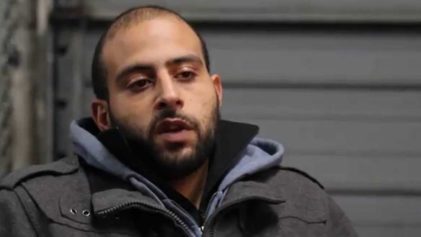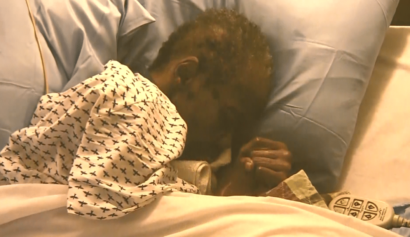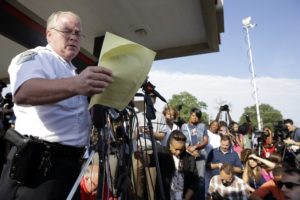
Both Fox and CNN have released reports from sources saying that Jackson stepped down on Wednesday, announcing a resignation that went into effect immediately.
His resignation comes as only the latest of a wave of city officials stepping down following a scathing report from the Justice Department.
The Department’s investigation revealed just how racist and corrupt the Ferguson Police Department really was.
From police dog attacks that only had Black victims to unbelievable racist emails that were exchanged between officials, the report painted a clear picture of the now infamous police department.
Jackson’s resignation comes after City Manager John Shaw stepped down on Tuesday.
The St. Louis Post-Dispatch reported that two officers, Capt. Rick Henke and Sgt. William Mudd, resigned on Thursday.
Ferguson Mayor James Knowles also announced last week that another police department employee was fired following the release of the racist emails.
The Department’s investigation was launched after Ferguson officer Darren Wilson fatally shot unarmed teen Michael Brown, sparking protests all across the nation.
Like many other white officers that gun down Black teens, Wilson was not charged in Brown’s murder.
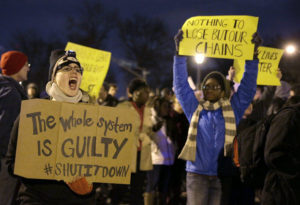
While the story started out the same, however, the Black community made it clear that they wanted this narrative to have a different ending.
Even after Wilson was allowed to walk free, the community pushed for Jackson’s resignation and urged Federal officials to take a closer look at the Ferguson Police Department’s racist history.
Wilson may not be behind bars and the Brown family will never have Michael at the dinner table again, but a ripple effect is at least working to slowly dismantle the racist governing body that contributed to the teen’s early grave.
As the fallout in Ferguson continues, however, the conversation much be continued on a larger scale.
Ferguson is not a unique case, although it is a tragic one.
From the Cleveland Police Department to the perhaps even more infamous New York Police Department, racism is still pulsing through the veins of law enforcement and cutting Black lives short. If not with a gun, then with handcuffs and undeserved sentences.
The dismantling of oppressive governing bodies is a necessary step in the call for justice but it is not the final nor the most important one.
“Federal authorities believe that only a fundamental reshaping of the way the city’s police force and courts operate can fix the situation,” The Washington Post‘s Mark Berman reports. “Some of the government’s recommendations would alter the nature of how police officers in the city spend their shifts, moving from a 12-hour period of work to a patrol more focused on a specific area or neighborhood.”
The solutions can’t stop there.
Ferguson must be cognizant of the deeply rooted racial problems in its community, as the city attempts to move forward.
As new officials are ushered into office in hopes of bringing about true reform, they must not only learn from the Department of Justice’s report but also from the many protesters all across the world that are still chanting “Black lives matter.”
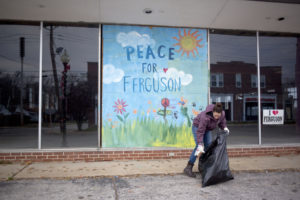
Last week Attorney General Eric Holder promised that the Justice Department would use its full authority to reform the Ferguson police department.
It’s a less than assuring message coming from the Department that was unable to even bring charges against neighborhood watchman George Zimmerman, New York police officer Daniel Pantaleo or Ferguson’s Darren Wilson.
It is, however, a reminder that maybe now is the time to tuck away ideas of rescue by an all-powerful federal government in future discussions of how to move forward to not only repair Ferguson, but to spark groundbreaking change across the nation.

